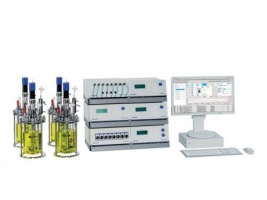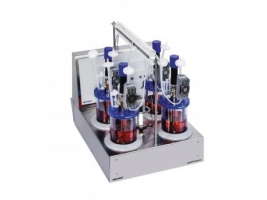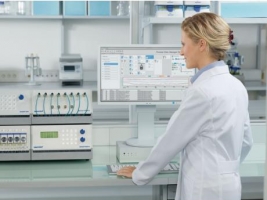DASGIP® Parallel Bioreactor
Eppendorf DASGIP Parallel Bioreactor Systems are designed to deliver optimal bioprocess performance in benchtop configurations. Scalable monitoring and control functionality enable users to achieve valid and reproducible results in an economical manner. Their modular design addresses the unique requirements of various applications in both cell culture and microbiology.
Product Information
DASGIP Parallel Bioreactor Systems for R&D and process development in both cell culture and microbiology allow for advanced bioprocess control and automation. Parallel processing, precise control of all relevant parameters, user-defined profiles and innumerable automation features result in accelerated and highly efficient process development. Our DASware software solutions support DoE, process historians and comprehensive data management. Configurable solutions address the unique requirements of microbial, phototrophic, mammalian and human cells, stem cell applications, as well as biofuel and biopolymer processes.
Features
- Parallel operation of up to 16 glass or single-use bioreactors
- DASGIP Bioblock for advanced and user-friendly temperature control
- Suitable for cell culture, microbial fermentation and phototrophic cultivation
- Modular design of control units allows for flexible system configurations that meet the demands of specific applications
- Control of agitation, pH, level and DO (including customizable cascade modes) in each bioreactor
- Variable speed pumps for accurate liquid addition and operation in batch, fed-batch, continuous and cyclic perfusion mode
- Optical absorbance measurement for online calculation of e.g. OD600 or cell dry weight
- TMFC individual gas mixing of air, N2, O2 and CO2
- Online calculation of OTR, CTR and RQ
- DASware control Software for advanced process control
- Compatible with DASware Software Suite for interconnectivity and bioprocess information management
Applications
- Research and development in cell culture and microbiology as well as phototrophic applications
- Lab scale fermentation of aerobic and anaerobic bacteria, yeasts and fungi
- Cultivation of mammalian, insect and human cell lines
- Special applications such as stem cell culture or biofuel/biopolymer development



